Meet our Graduates
AIHI Graduate Profiles
Klay Lamprell (PhD 2017)
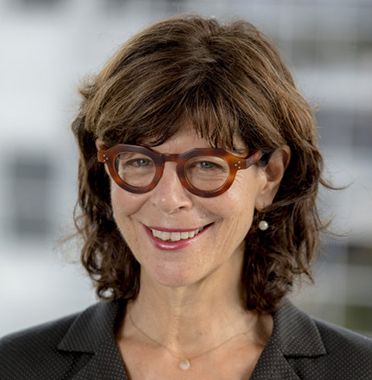 I came to academia from a journalistic background, so human interest stories are a passion. My doctoral thesis focused on the idea that patients are the only people who comprehend their healthcare journeys in entirety. I explored the ways that cancer patients’ narratives of their healthcare experiences, from initial help-seeking through to outcome, can identify key aspects of patient experience that cross-sectional research might miss. I focused on people with melanoma, ethnographically following a group of patients with advanced and metastatic melanoma and also analysing over 200 written personal accounts of melanoma journey published on the Internet. Professor Jeffrey Braithwaite was my doctoral supervisor and he facilitated my transition to academia every step of the way. It helped also that I found I’d unwittingly entered the field of medical humanities, which applies interdisciplinary perspectives from the arts, humanities and social sciences to the practice of medicine.
I came to academia from a journalistic background, so human interest stories are a passion. My doctoral thesis focused on the idea that patients are the only people who comprehend their healthcare journeys in entirety. I explored the ways that cancer patients’ narratives of their healthcare experiences, from initial help-seeking through to outcome, can identify key aspects of patient experience that cross-sectional research might miss. I focused on people with melanoma, ethnographically following a group of patients with advanced and metastatic melanoma and also analysing over 200 written personal accounts of melanoma journey published on the Internet. Professor Jeffrey Braithwaite was my doctoral supervisor and he facilitated my transition to academia every step of the way. It helped also that I found I’d unwittingly entered the field of medical humanities, which applies interdisciplinary perspectives from the arts, humanities and social sciences to the practice of medicine.
I now work as a Post Doctoral Research Fellow in the NHMRC Centre of Research Excellence in Implementation Science in Oncology (CRE-ISO), which is part of the Centre for Healthcare Resilience and Implementation Science (CHRIS) at the AIHI. My work with Jeffrey and the team still has a narrative framework and my focus on human interest stories continues, looking at the impact of gaps between evidence-based knowledge and clinical practice. It’s been an exciting professional shift, and I’m grateful for the opportunity at the AIHI to make a meaningful contribution to quality healthcare practice, especially in the challenging context of COVID-19.
George Larcos (PhD 2018)
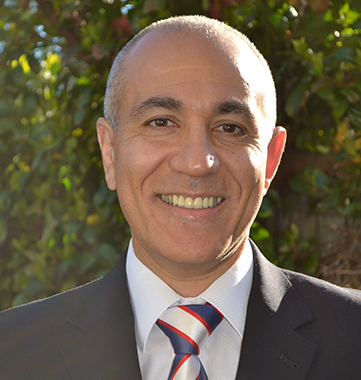 I work as a specialist in nuclear medicine in a large teaching hospital in Sydney as well as in private practice. Although generally very safe, there is an inherent risk from incidents in which patients receive an incorrect radiopharmaceutical type or prescribed radioactivity. Historically, incidents have been managed as part of a regulatory system in NSW and my interest in this field was piqued several decades ago when I was a member of the NSW Radiation Advisory Council.
I work as a specialist in nuclear medicine in a large teaching hospital in Sydney as well as in private practice. Although generally very safe, there is an inherent risk from incidents in which patients receive an incorrect radiopharmaceutical type or prescribed radioactivity. Historically, incidents have been managed as part of a regulatory system in NSW and my interest in this field was piqued several decades ago when I was a member of the NSW Radiation Advisory Council.
My thesis explored methods to measure and characterise incidents in nuclear medicine, as well as identifying ways that frontline staff employ to uphold safety in varying and sometimes unpredictable situations.
I was fortunate to have two excellent supervisors in Professors Johanna Westbrook and Andrew Georgiou. Although neither was familiar with nuclear medicine per se, their broader academic skills were fundamental to the overall appeal and novelty of the research undertaken. It is no exaggeration to say that I couldn’t have completed my PhD without them.
The friendly staff at the AIHI also deserve considerable credit in their support of students and PhD candidates. There were never any issues in accessing material, arranging meetings or receiving advice.
The PhD has helped make me a better researcher and imparted key skills in critical analysis. I now have several University of Sydney MD research students that I am supervising and am actively contributing to curriculum development for the Sydney Medical School. More broadly, my expertise in nuclear medicine safety and quality improvement is contributing to policy development for jurisdictional radiation protection bodies.
David Lyell (PhD 2019)
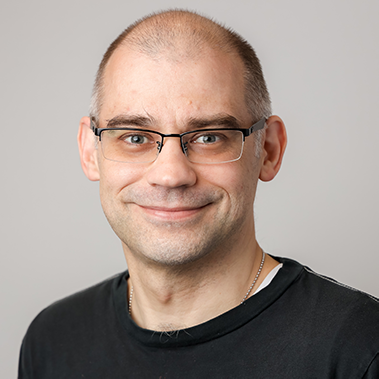 I have had a roundabout research journey. I first studied a bachelor’s degree in Psychology and Sociology, followed by a Master of Business Administration incorporating an applied research project. The opportunity to study a PhD in Health Informatics represented coming full circle, by combining my educational background in Psychology with an interest in technology, especially in how it changes and shapes society in the applied arena of healthcare.
I have had a roundabout research journey. I first studied a bachelor’s degree in Psychology and Sociology, followed by a Master of Business Administration incorporating an applied research project. The opportunity to study a PhD in Health Informatics represented coming full circle, by combining my educational background in Psychology with an interest in technology, especially in how it changes and shapes society in the applied arena of healthcare.
My doctoral thesis examined automation bias in electronic prescribing. In an experiment, medical students suffered an automation bias when they overly relied upon medication alerts to warn of potentially harmful prescribing errors – this over-reliance caused prescribing errors when decision support was incorrect. Those who suffered an automaton bias used decision support as a mental shortcut demonstrated by reducing information seeking and cognitive effort. While efficient for decision-makers, the ability to recognise decision support failures is severely compromised and risks harmful medical errors.
I now work as a Postdoctoral Research Fellow in patient safety informatics at the Centre for Health Informatics at AIHI. My research examines how humans interact with decision support systems, especially those leveraging emerging artificial intelligence and machine learning technologies. The focus is on evaluating the risks of technology-induced errors which may affect the quality and safety of healthcare. My doctoral studies at AIHI helped me to develop the research skills, methods, knowledge and experience that I now regularly draw on in my work. Taking on the role of associate supervisor for two PhD candidates has provided me with the opportunity to share my experiences and partake in the exciting research being conducted by AIHI’s PhD candidates.
Rabia Bashir (PhD 2019)
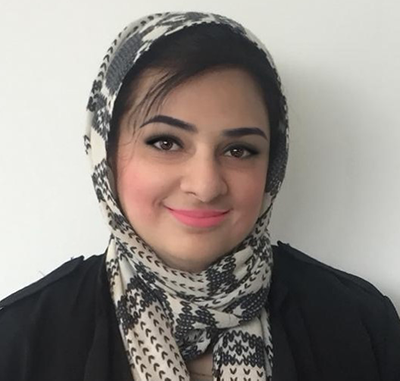 I started my PhD at the Centre for Health Informatics (CHI) in 2016, supported by a competitive International Macquarie University Scholarship. As a software engineer scholar, a PhD in Health Innovation was diving into the unknown, but I quickly adapted to the new faculty and discipline. My research examined inefficiencies in the systematic review ecosystem. Taking a software engineering perspective, I developed and proposed a new method for helping researchers to decide when a systematic review update is warranted. My doctoral work has the potential to significantly benefit meta-research, systematic reviews, and clinical research informatics. My thesis was examined by expert academics in the field, and one of them judged it among the top 5% of PhD submissions internationally.
I started my PhD at the Centre for Health Informatics (CHI) in 2016, supported by a competitive International Macquarie University Scholarship. As a software engineer scholar, a PhD in Health Innovation was diving into the unknown, but I quickly adapted to the new faculty and discipline. My research examined inefficiencies in the systematic review ecosystem. Taking a software engineering perspective, I developed and proposed a new method for helping researchers to decide when a systematic review update is warranted. My doctoral work has the potential to significantly benefit meta-research, systematic reviews, and clinical research informatics. My thesis was examined by expert academics in the field, and one of them judged it among the top 5% of PhD submissions internationally.
I was truly blessed to undertake my doctoral research with two amazing supervisors, Associate Professor Adam Dunn (now at University of Sydney) and Dr Didi Surian, who always motivated and encouraged me to become an independent researcher. During my studies, I gained innovative skills, learned new methodologies, and articulated brand new concepts. I was fortunate to be awarded Macquarie University’s Postgraduate Research Fund to present my research work at the 25th Cochrane Colloquium, Edinburgh, 2018. The same year I was also awarded a CHI prize for outstanding dedication to doctoral studies.
My doctoral studies ended with a brilliant capstone, being awarded the Ramy Razavian Dean’s Award for Excellence in Higher Degree Research in the Faculty of Medicine and Health Sciences. I currently hold a position as honorary postdoctoral associate with CHI.
Zeyad Mahmoud (PhD cotutelle 2020)
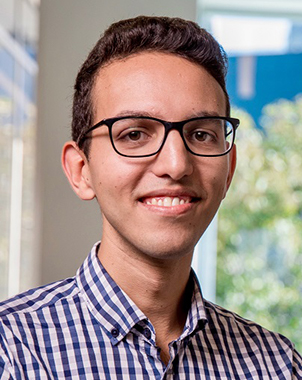 I moved to Sydney from Nantes, France, in 2018 to continue my doctoral research after being awarded a prestigious Cotutelle International Research Excellence Scholarship from Macquarie University. Titled Hospital Management in the Anthropocene, my PhD was the first multinational interdisciplinary research project designed to address one of the greatest challenges faced by health systems in our modern era: striking a balance between efficiency and human centricity. Throughout three research-intensive years, I was fortunate to collaborate with hospitals in France and Australia which allowed me to conduct prolonged ethnographic research in their operating theatres. Using the data I collected, and building on our existing knowledge in the fields of Management Science, Health Services Research and Big History, I developed a unique and easily operationalizable management framework for hospitals looking to improve the efficiency of operating theatres while empowering and supporting their nursing staff.
I moved to Sydney from Nantes, France, in 2018 to continue my doctoral research after being awarded a prestigious Cotutelle International Research Excellence Scholarship from Macquarie University. Titled Hospital Management in the Anthropocene, my PhD was the first multinational interdisciplinary research project designed to address one of the greatest challenges faced by health systems in our modern era: striking a balance between efficiency and human centricity. Throughout three research-intensive years, I was fortunate to collaborate with hospitals in France and Australia which allowed me to conduct prolonged ethnographic research in their operating theatres. Using the data I collected, and building on our existing knowledge in the fields of Management Science, Health Services Research and Big History, I developed a unique and easily operationalizable management framework for hospitals looking to improve the efficiency of operating theatres while empowering and supporting their nursing staff.
Taking place between France and Australia, my PhD journey has been extremely rewarding; I was honoured to speak to academics, clinicians, health administrators, and policymakers at 12 conferences and seminars in 4 countries. I published peer-reviewed articles and book chapters, tutored and lectured for undergraduate and postgraduate students, was a consultant for world-renowned organisations and most importantly had many eye-opening conversations with academics, students and practitioners from a variety of backgrounds and fields. For all these opportunities, I am grateful to my supervisors and to the culture at Australian Institute of Health Innovation (AIHI) that provides HDR students with the flexibility and support needed to advance their careers. Beyond providing research related support, my team of supervisors, headed by Professor Jeffrey Braithwaite, and my colleagues at AIHI were with me every step of the way as I simultaneously navigated the additional complexities of different administrative systems, ethics and regulatory bodies as well as cultural and social contexts. In December 2019, I submitted my PhD and three months later my thesis was unanimously recognised by its examiners for being among the top 10% of doctoral research projects and commended for its outstanding contribution to my field of research. Today, I am honoured to be continuing my research as a Postdoctoral Fellow at AIHI working with world-renowned experts on finding innovative solutions to the “wicked problems” faced by health systems in Australia and the world.
Ashfaq Chauhan (PhD 2022)
My passion for improving quality and safety health outcomes for people from culturally and linguistically diverse (CALD) backgrounds stems from my background as a clinical physiotherapist and as a migrant to Australia. As a migrant from CALD background, I had observed distinct disparities in health outcomes for people from CALD backgrounds and how they are engaged in their health care decision-making. As a clinical physiotherapist working in Australia, I had observed that the health systems and services do not fully cater to the distinct needs of the people from CALD backgrounds. I was fortunate to complete my PhD with a very supportive supervisory team lead by Associate Professor Reema Harrison that had a focus on improving patient safety outcomes for people from CALD backgrounds with cancer. I applied a holistic, multi-method approach to my research with high levels of consumer engagement in order to understand and develop strategies to address systemic issues impacting patient safety for patients from CALD backgrounds accessing cancer care in Australia. My research was the first to explore the rate and nature of patient safety events experienced by patients from CALD backgrounds using cancer services. My PhD had distinct focus on developing strategies that support consumer engagement to make cancer care safer for people from CALD backgrounds. Using co-design approach, I developed a patient safety intervention called ‘Making-it-Meaningful’ with patients and clinicians to enhance medication safety – a key issue identified in my research.
I now work as a Postdoctoral Research Fellow at the Centre for Health Systems and Safety Research (CHSSR) based at AIHI with A/Prof Reema Harrison and her team. Based at the Centre, I am currently working on projects that have a key focus on improving patient safety and quality outcomes for people for people from CALD backgrounds. Working at AIHI has also allowed me to foster cross-centre collaborations with other centres based at the institute. I am fortunate to work at the Institute that supports postdoc to advance their research and professional goals. I am grateful for the support I receive from A/Prof Reema Harrison and wider team at CHSSR to be a better researcher and develop skills in areas of leadership, communication and management.
